
Chess is a board game for two players. It is sometimes called international chess or Western chess to distinguish it from related games such as xiangqi and shogi.
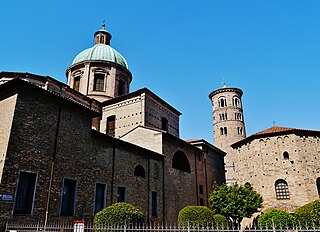
Ravenna is the capital city of the Province of Ravenna, in the Emilia-Romagna region of Northern Italy. It was the capital city of the Western Roman Empire during the 5th century until its collapse in 476, after which it served as the capital of the Ostrogothic Kingdom and then the Byzantine Exarchate of Ravenna.
This page indexes the individual year in art pages; see also art periods. This list is exclusively for the visual arts; for music, see Timeline of musical events.
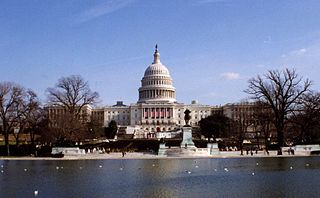
The 103rd United States Congress was a meeting of the legislative branch of the United States federal government, composed of the United States Senate and the United States House of Representatives. It met in Washington, D.C. from January 3, 1993, to January 3, 1995, during the final weeks of George H. W. Bush's presidency and in the first two years of Bill Clinton's presidency. The apportionment of seats in the House of Representatives was based on the 1990 United States census.
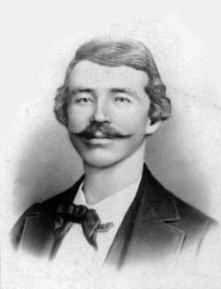
William Clarke Quantrill was a Confederate guerrilla leader during the American Civil War.
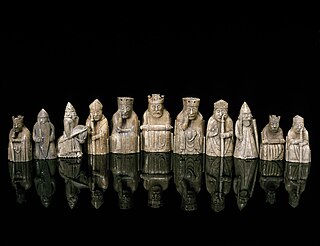
The history of chess can be traced back nearly 1,500 years to its earliest known predecessor, called chaturanga, in India; its prehistory is the subject of speculation. From India it spread to Persia, where it was modified in terms of shapes and rules and developed into Shatranj. Following the Arab invasion and conquest of Persia, chess was taken up by the Muslim world and subsequently spread to Europe via Spain and Italy. The game evolved roughly into its current form by about 1500 CE.
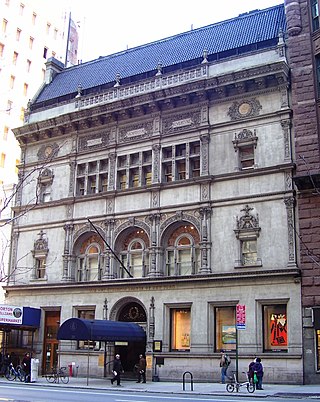
The Art Students League of New York is an art school in the American Fine Arts Society in Manhattan, New York City. The Arts Students League is known for its broad appeal to both amateurs and professional artists.
The bibliography of the American Civil War comprises books that deal in large part with the American Civil War. There are over 60,000 books on the war, with more appearing each month. Authors James Lincoln Collier and Christopher Collier stated in 2012, "No event in American history has been so thoroughly studied, not merely by historians, but by tens of thousands of other Americans who have made the war their hobby. Perhaps a hundred thousand books have been published about the Civil War."
The Searle Scholars Program is a career development award made annually to support 15 young faculty in biomedical research and chemistry at US universities and research centers. The goal of the award is to support to exceptional young scientists who are at the beginning of their independent research careers and are working in the fields of medicine, chemistry, and/or biological sciences.
This article documents the progress of significant human–computer chess matches.

The wedding of Prince Andrew and Sarah Ferguson was held on 23 July 1986, at Westminster Abbey in London, England.
The Camille Dreyfus Teacher-Scholar Awards are awards given to early-career researchers in chemistry by The Camille and Henry Dreyfus Foundation, Inc. "to support the research and teaching careers of talented young faculty in the chemical sciences." The Dreyfus Teacher-Scholar program began in 1970. In 1994, the program was divided into two parallel awards: The Camille Dreyfus Teacher-Scholar Awards Program, aimed at research universities, and the Henry Dreyfus Teacher-Scholar Awards Program, directed at primarily undergraduate institutions. This list compiles all the pre-1994 Teacher-Scholars, and the subsequent Camille Dreyfus Teacher-Scholars.